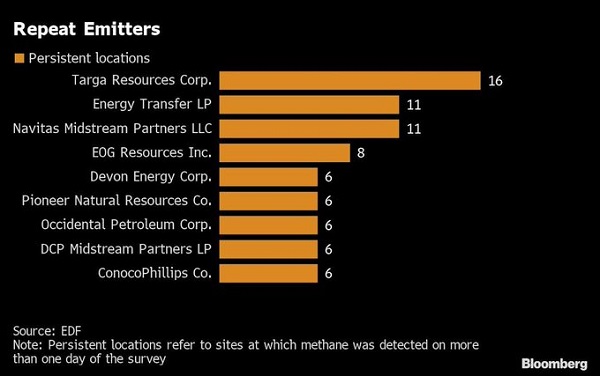28 September 2021
Luke Haverhals, Founder and CEO of Natural Fiber Welding, Inc. | Research Professor of Chemistry at Bradley University writes that vast methane pollution/emissions are associated with the production of so-called “vegan” plastic (polyurethane, PU) leather-like materials…including “cactus” (take note of this fact BMW “experts” – Editor) + polyurethane and “mushrooms” + bioplastics, et cetera.

Methane is “used” in two general ways when producing plastics and bioplastics:
1) burning methane to drive chemical processes and produce materials
2) methane leaks (direct to atmosphere) during extraction, transport, processing
As is shown below, the plastics and bioplastics industries have been UNDER reporting the true carbon footprint of polyurethane and biopolyurethane. Methane leaks from extraction, transport, and processing have been going on for decades…yet data used to calculate LCAs do NOT reflect the true scientific realities:
“When researchers flew over an Energy Transfer LP facility in the Permian Basin of West Texas two months ago, a NASA-designed sensor on their airplane detected a colossal plume of methane pouring into the air.”
“Over the next two weeks, they returned twice and found large amounts of the powerful greenhouse gas each time.”
“The invisible leak was later calculated at more than a ton per hour, with a short-term impact on the atmosphere equivalent to about 47,000 idling cars.”
“EDF found emissions at a total of 533 different locations, including 149 persistent ones, where plumes were spotted in the same place on at least two different days. Energy Transfer and Targa Resources Corp., both Texas-based pipeline operators, were among those with the highest numbers of persistent sources at 11 and 16, respectively.”
In general, the plastics and bioplastics (e.g., “biopolyurethane”) industry has undertaken a huge greenwashing marketing ploy. Claiming use of “cactus”, “mushrooms”, “fruit”, “apples”, et cetera is misleading given use of PU is what makes these “leather-like” materials perform. Moreover, we now see LCAs for bioplastics are being reported to unsuspecting consumers and where “carbon negative” is erroneously being claimed…even though material production processes very clearly are NOT anywhere close to “carbon negative”.
Simply put, buying carbon credits does not make production processes for plastics and bioplastics “efficient” and “carbon negative”. Buying carbon credits and using these credits to cover production emissions is simply an accounting method of “robbing Peter to pay Paul”. No serious/rigorous accounting and auditing principles agree with such a tactic.
Yet here we are, with automotive companies claiming “vegan leather” interiors are “sustainable” based on non sequitur “cruelty-free” marketing claims:
Volvo adapts Tesla’s vegan sustainability definition
Anyone who claims the petrochemical industry is “cruelty-free” is either seriously diluted and/or willfully ignorant of basic scientific facts. Climate and pollution impacts are NOT holistically “cruelty-free”. Tesla & Volvo Group, this type of bait and switch marketing does not position humanity to be “more sustainable”.
We bring leather, material and fashion businesses together: an opportunity to meet and greet face to face. We bring them from all parts of the world so that they can find fresh partners, discover new customers or suppliers and keep ahead of industry developments.
We organise a number of trade exhibitions which focus on fashion and lifestyle: sectors that are constantly in flux, so visitors and exhibitors alike need to be constantly aware both of the changes around them and those forecast for coming seasons.